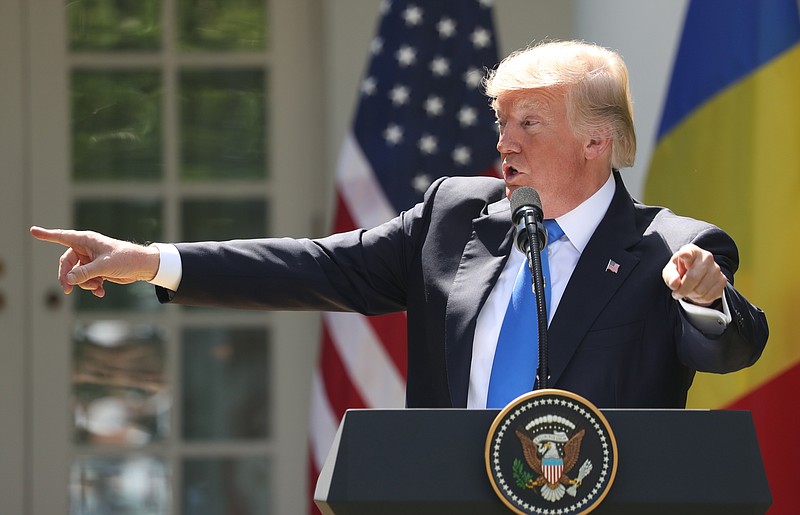One of the many dangers posed to our society by having a president who's a serial liar is that we more easily ignore him even if he happens to say something true.
Yes, some things are true even if Donald Trump believes them. I explored one of them in China last week - Trump's charge that China is playing unfair on trade.
My visit to Beijing left me with two very strong responses. The first is that we underestimate China - and attribute all of its surge in growth to unfair trade practices - at our peril. The country has been fast and smart at adopting new technologies, particularly the mobile internet. For instance, China has moved so fast into a cashless society, where everyone pays for everything with a mobile phone, that Chinese newspapers report beggars in major cities have started to place a printout of a QR code in their begging bowls so any passer-by can scan it and use mobile payment apps like Alibaba's Alipay or Tencent's WeChat Wallet to contribute to the beggar's mobile payment account.
Chinese men and women friends tell me they don't carry purses or wallets anymore, only a mobile phone, which they use for everything - including for buying vegetables from street vendors.
Moreover, while Trump is pulling out of the Paris climate deal, China is steadily pulling out of coal. Xin Guo, CEO of Career International, told me two of his hottest job openings in China are in "software and new energy" - everyone is looking for engineers for electric cars, solar and wind.
And yet, as smart as China has been in adopting new technologies, Trump's broad complaint that China is not playing fair on trade and has grown in some areas at the expense of U.S. and European workers has merit and needs to be addressed - now.
The core problem, U.S. and European business leaders based in China explained, is that when the U.S. allowed China to join the World Trade Organization in 2001 and gain much less restricted access to our markets, we gave China the right to keep protecting parts of its market - because it was a "developing economy." The assumption was that as China reformed and become more of our equal, its trade barriers and government aid to Chinese companies would melt away.
They did not. China grew in strength, became America's equal in many fields and continued to protect its own companies from foreign competition, either by limiting access or demanding that foreign companies take on a Chinese partner and transfer their intellectual property to China as the price of access, or by funneling Chinese firms low-interest loans to grow and buy foreign competitors.
Once those companies got big enough, they were unleashed on the world.
The latest annual survey of the American Chamber of Commerce in China, released in January, found that 81 percent of its members felt "less welcome" in China than in the past and had little confidence any longer that China would carry through on promises to open its markets. APCO Worldwide's James McGregor, one of the keenest observers of China trade, recently noted that China tells the world that its policy is "reform and opening," but on the ground its policy "more resembles reform and closing."
Today, Alibaba can set up its own cloud server in America, but Amazon or Microsoft can't do the same in China. China just agreed to allow U.S. credit card giants, like Visa and MasterCard, access to its huge market - something it was required to do under WTO rules but just dragged its feet on for years - but now domestic Chinese financial services companies, like UnionPay, so dominate the Chinese market that U.S. companies will be left to fight over the scraps.
This is not fair. China needs to know that some people who disagree with everything else Trump stands for - and who value a strong U.S.-China relationship - might just support Trump's idea for a border-adjustment tax on imports to level the playing field. Because our economic relationship with China is out of whack - and not just because China makes great products, but because we do, too, and it's high time they are all allowed through China's front door.
